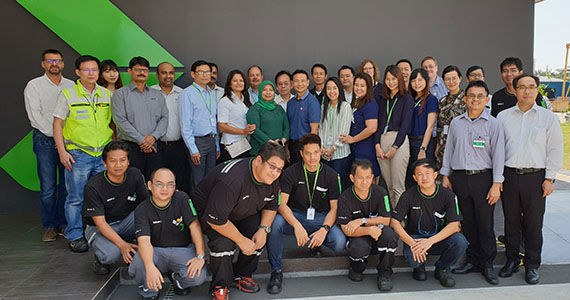Valmet’s human rights impact assessment
May 8, 2020

Human rights are the rights of every individual – they are universal, equal for all and fundamental. The idea of human rights for every person in the world was initially established in 1948, when the United Nations General Assembly proclaimed the Universal Declaration of Human Rights.
The three pillars of the UN Guiding Principle for human rights define the different roles in their protection. The state has a “duty to protect human rights,” business has a “responsibility to respect human rights,” and the right of victims is “access to effective remedy.”
The business responsibility to respect human rights means that a company’s public commitment to respect human rights is embedded in its operations through related policies and processes. It also includes an ongoing process of human rights due diligence, as well as processes for providing remedy to anyone harmed where a business caused or contributed to – through its own operations or business relationships – that harm.
Valmet is committed to the United Nations (UN) Guiding Principles on Business and Human Rights. Within the framework of our Sustainability360º Agenda, we have created a management system for human rights due diligence in our own operations.
There are four steps in Valmet’s site-level human rights impact assessment.
- The first step includes stakeholder engagement activities, entailing interviews and discussions with managers and employees, as well as suppliers.
- Based on the interviews and other information collected, we can identify actual and potential negative impacts on people – which is also the second step in the process.
- Analysis of impacts forms the third step and examines what causes the impacts, and how Valmet contributes to or is linked to negative impacts on human rights.
- The fourth step is the implementation of the action plan to improve human rights-related routines and practices.
As part of our efforts to create a high-quality system, the human rights impact assessment was piloted in 2018 in Thailand. The findings made during the pilot helped us to further develop Valmet’s human rights practices globally. In 2019, we conducted human rights impact assessments in Indonesia and China.
The latest assessment was conducted in late 2022 in India. The findings of the assessment were mainly related to occupational health and safety and working conditions. We will define and implement the corrective action plan and the corrective actions will be completed and verified during 2023.